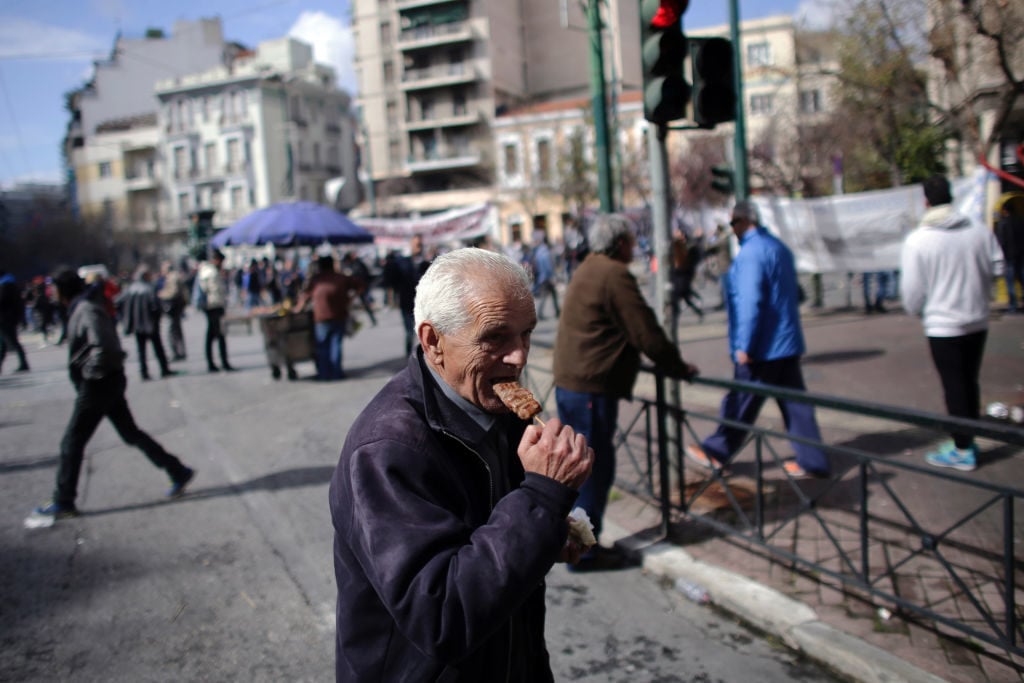Politics
On the Eve of the Biennale, Venice Puts Freeze on Kabab Shops to ‘Preserve Decorum’
Authorities claim they are trying to preserve local character.

Authorities claim they are trying to preserve local character.

Caroline Goldstein

Hoards of art lovers are gearing up to head to the Venice Biennale, one of the world’s most important art events. But the real debate over culture may be elsewhere. As of this week, Venetian authorities have taken a new step towards maintaining the so-called ‘traditional’ heritage on the island: They’ve moved to put a stop to kebab shops.
A law passed on Thursday forbids the opening of new fast-food outlets in an effort to “preserve decorum and traditions,” according to a statement in the Guardian from Paola Mar, the city’s tourism chief.
The new law also puts a freeze on shops selling individual slices of pizza. It spares ice-cream vendors, who apparently don’t detract from the ambiance of the Sinking City.
Venice is purportedly taking steps to defend itself from changes caused by the massive influx of tourists each year, which has provoked tension over a loss of historic character.
“The problem is that with a tourist city like ours, there is a risk of it losing its identity,” Mar told the Guardian. “There are local products that we must try to promote, this would be better for the spirit of the city and, at an environmental level, would be more sustainable.”
Given the timing, it recalls another controversy over the city’s character from the Biennale two years ago, when artist Christoph Büchel transformed a 10th century Catholic church into a functional mosque as his contribution to the Icelandic Pavilion.
Büchel’s work had been meant to call attention to the Islamic culture that has proliferated in Venice over centuries, despite the fact that the city has never allowed a mosque to be erected. The mosque was promptly shut down by Venice police, who claimed “safety concerns” were at the heart of their actions.